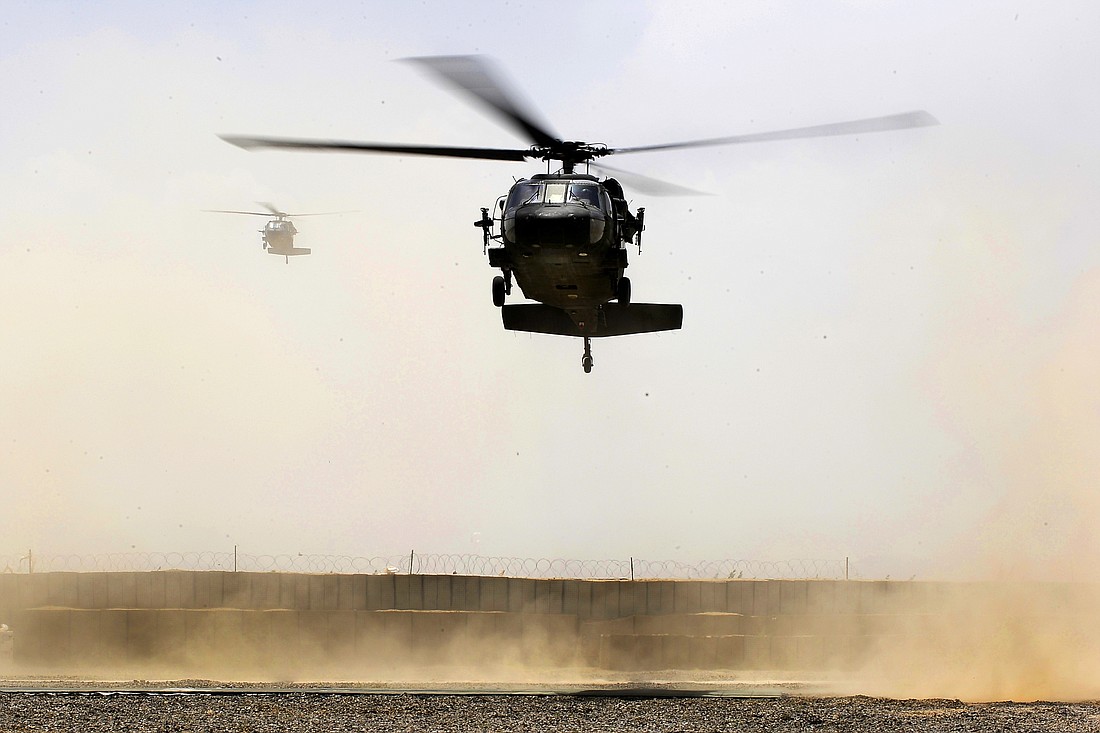- January 7, 2025
-
-
Loading

Loading

by: Frank Farmer
The world looked on in disbelief as Kabul, the capital of Afghanistan, fell to Taliban forces on Aug. 15. We had been assured by the president of the United States that this was not analogous to the fall of Saigon in 1975 with helicopters landing on roof tops and South Vietnamese citizens clinging to the landing skids as the helicopters lifted off. Instead, the scene was one of huge C-17 U.S. Air Force planes rolling down the runway with hundreds of Afghans running beside it desperate to escape the Taliban. The scene becomes gruesome with some clinging to the fuselage and then falling to their deaths as the aircraft gained altitude.
It was only too reminiscent of Vietnam, and I suspect that there will be many similarities with the failures in Vietnam and Afghanistan. These similarities will be brought out in the coming months as historians and journalists investigate how these failures occurred. I also suspect that some of the same failures that were at the core of the Vietnam debacle will be found to be present in the Afghanistan catastrophe.
In Vietnam, it was found that there was no clear definition of the end game of that conflict. Was it the defeat of the North Vietnamese army and unconditional surrender of that country? Apparently not, as the war became more about not to defeat the North Vietnamese but make them want not to continue the conflict. This calculation apparently ignored the history of Vietnam, as the country had been in conflict for hundreds of years with the Chinese, French and Japanese with millions of casualties and yet they continued to fight.
The same can be said of the Afghanistan people with thousands of years of tribal warfare, with loyalties going to the tribe rather than to a national government. The original stated purpose of the United States was to find and neutralize those perpetrators of 9/11 and deny safe haven for terrorists who threatened America. This was accomplished early on, but the war continued.
Another reason for failure in Vietnam was the overly optimistic assessments given by military and intelligence sources that were wildly wrong and promised that victory was just around the corner. These reports painted a military picture that further and further dragged the United States into a quagmire. How could this have happened? The analysis by historians has pointed to the culture of the military or came to be the culture of the military because of Vietnam. Mid-level officers, such as captains and majors who served as advisers to the South Vietnam military, saw the ineptitude and incompetency but were either ignored or consigned to military career paths that essentially ended their military careers. I was one of those mid-level advisers in Vietnam.
Surely, the American advisers on the ground with Afghanistan forces were aware of the inadequacies of these units. There are reports that these advisers did advise higher commands of these issues. However, the higher commands, in many instances, either ignored them or suppressed them as forwarding unwelcome information to higher authorities could have negative consequences for the next eagle or star. The collapse of the Afghan army in eight days is testimony to its incompetency.
The same complaints can be leveled at the U.S. intelligence agencies that have the responsibility to protect America. What are the reasons for their optimistic (and wrong) analysis of the Afghanistan military and Taliban capabilities? Hopefully, the post war studies will find the reasons. Americans should not have to go through two conflicts that have been disasters for the nation and thousands of dead and maimed men and women.
Let us find the reasons for these miscalculations and faulty reasoning that led to our defeat in two wars, correct them even if that means replacing incompetent military and intelligence officers and take the steps to ensure this never happens again.
Frank Farmer, of Ormond Beach, has an MD, a PhD in history, and is a retired U.S. Air Force colonel.